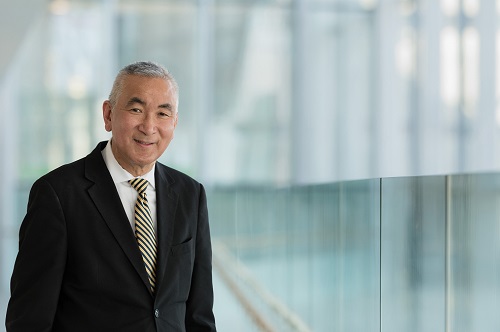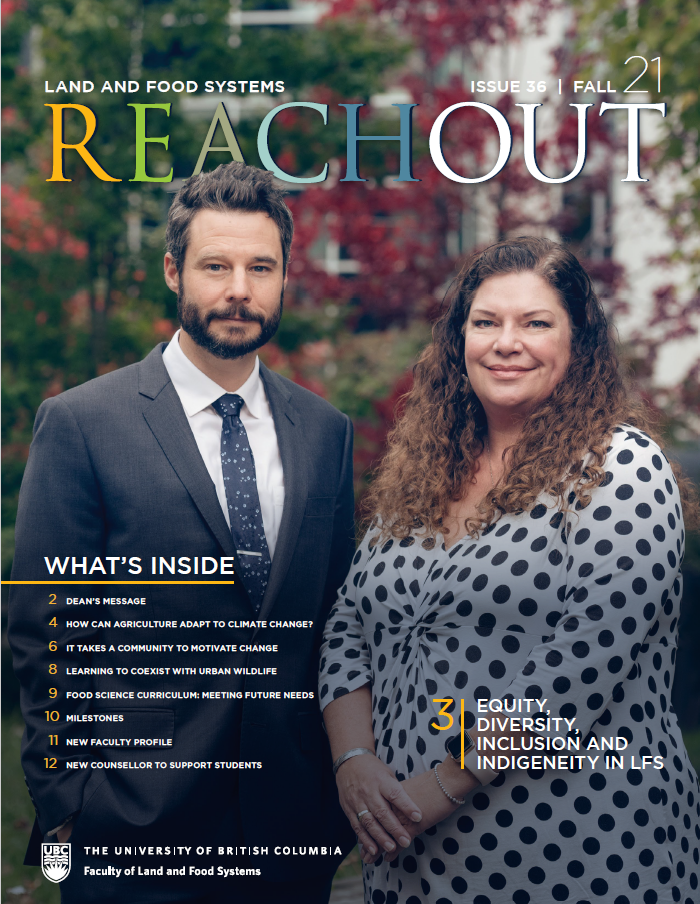Message from the Dean

In this issue, we explore how student learning is changing.
While our faculty has been relatively strong at incorporating social issues and systems thinking into our curriculum, we recognize there’s still a long way to go. With the creation of two new positions in LFS, we’ll be making greater inroads at embedding equity, diversity, inclusion and Indigeneity (EDI.I) into our courses and rethinking how food systems courses can be taught.
Science-based programs have focused on data, facts and empirical research. Our aim is to place greater emphasis on social issues when searching for solutions, and to include Indigenous ways of knowing, culture and history into our research and teaching more often.
There aren’t any shortcuts, and it involves providing new knowledge and support to faculty members, as we all work towards training future food systems leaders to be prepared for challenges ahead.
We have a stellar example showing how one group of UBC undergraduate students collaborated with an Indigenous-led community organization to begin addressing urban food insecurity. Their passion and openness to learn about lived experiences different from their own, and their outstanding efforts led them to win first place at a global competition called Map the System.
In addition, this year the world has experienced climate-related emergencies on a scale never seen before. The frequency and intensity of droughts, rain storms, hurricanes, etc., is increasing. The damage left in their wake is finally making more people take notice. This is sorely needed because it’s time to change our behaviour, before it’s too late.
That’s why we asked some of our researchers who have been studying the impact of climate change on agriculture and its ecosystem services to answer the question: How can agriculture adapt to climate change?
There are some thought-provoking ideas in this issue of ReachOut. I hope you enjoy the read.
Take care and stay safe,
Rickey Yada
Dean and Professor, Faculty of Land and Food Systems
